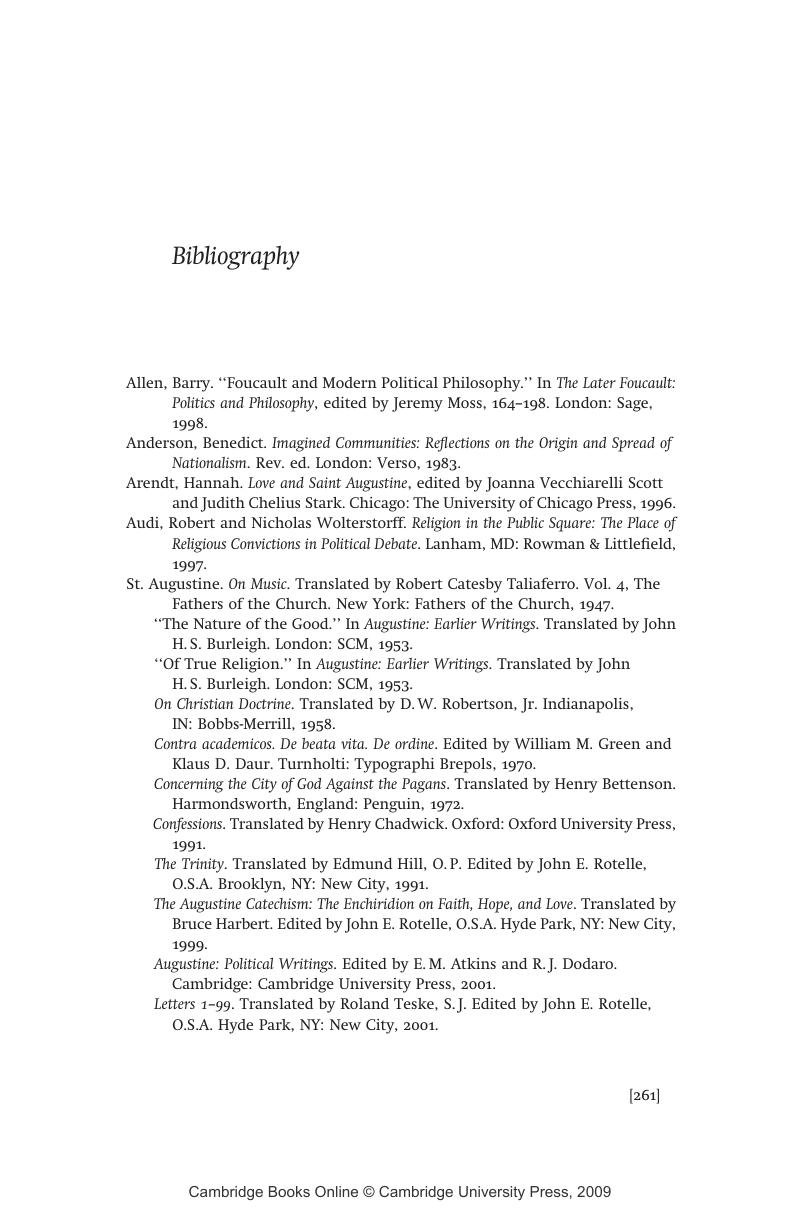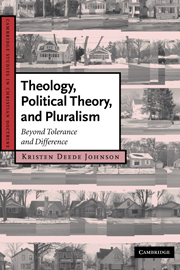Bibliography
Published online by Cambridge University Press: 22 September 2009
Summary

- Type
- Chapter
- Information
- Theology, Political Theory, and PluralismBeyond Tolerance and Difference, pp. 261 - 272Publisher: Cambridge University PressPrint publication year: 2007

